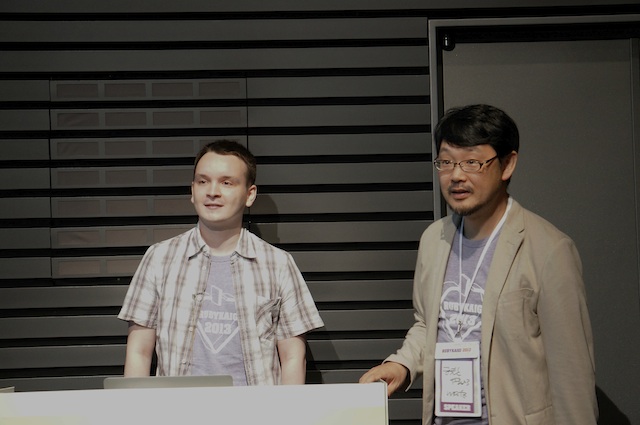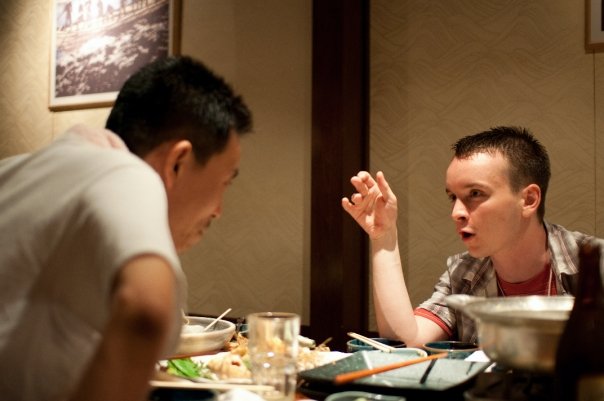This articles was published on 2013-06-03
TL;DR RubyKaigi == :amazing
I attend RubyKaigi since quite a while. In 2009 I gave the first time a talk and I’m so touched when I look back at the pictures and listen to the rk soundtrack of that time (yes, there is a soundtrack for RubyKaigi). So my heart was deeply broken when I heard that RubyKaigi will stop in 2011. But then RubyKaigi was rebooted this year with a season two.
This years RubyKaigi was more like mrubyKaigi for me, due to the reason that I met nearly the complete mruby team. I could talk to many people from the IIJ Team. I met Masaki Muranaka, Yuichiro MASUI, Yurie Yamane, Masayoshi Takahashi and last of all Yukihiro Matsumoto, who supported the Q&A session after my talk.
During a talk before my slot I notice a short remark about girls in Taiwan. And I was at the same moment sure, in the United States or in Europe this would create some kind of #aufschrei. Well it didn’t create one “yet” but it turned out that someone started suggesting to woman to not attend next years RubyKaigi because of that.
Lets ignore for just a short moment that the person who was talking and made the remark of “kawaii girls”, wasn’t a native english speaker (with non-english speaker I also indicate someone who might not be aware of western culture). Ignore also that he is neither a japanese speaker. And lets also ignore that kawaii is not directly comparable to the english “cute”, due to the reason that from a cultural perspective in the west it is embarrassing to behave “cute” as an adult. In some other areas in the world it is loveable. Lets ignore all these points due to the reason that I don’t want to define what is offensive and what isn’t (some other people like to think they can decide that). I want to talk about what we should do. And the author of the complain is suggesting that woman shouldn’t attend next years RubyKaigi. And I think this is the worse thing they can do!
As I said, I attend RubyKaigi since quite a while and when I first came to Japan I felt lost. I felt scared and I felt like a burden to the conference organiser. I was one of the very few non-japanese attendees not capable of speaking japanese. What did happen? The conference organiser helped me by translating my slides. There was an IRC channel which made a live translation. People like Chisako Katayama and Leonard Chin helped me to communicate with people who couldn’t speak english.
Here I’m talking to Kakutani in 2009 about my talk (one of the main organizer of RubyKaigi):
Now in 2013 I’m not afraid and I’m not scared anymore but for sure I’m still feeling like a burden. Due to the reason that the conference organisers actually push japanese speaker to hold their LT in english. Due to the reason that all japanese talks are simultan translated to english. I have the greatest respect to the conference organisers, knowing how hard it is to make a conference and at the same time knowing how expensive it is to hire proper translators.
Would they have done it if non-japanese attendees/speakers were not attending in the last several years? I highly doubt that. It wouldn’t have helped if I would have stayed at home because I couldn’t understand every single talk. Instead I came and tried my best to understand. And in the end I came closer to understand the japanese mindset and they came closer to speak in a language I’m more fluent (as you recognise I’m also not native english). So I don’t think it is a good idea to tell girls and woman to stay home. Nothing will get better in this way. Instead I will tell everybody, not only girls and woman but Rubyists and non-Rubyists to attend the most accessible Ruby conference I have ever attended, RubyKaigi.
In Europe and the United States we are trying hard to solve the issue of the “Gender-Gap”. In Japan at RubyKaigi a much bigger issue was already solved: the “Culture- and Language-Gap”.

